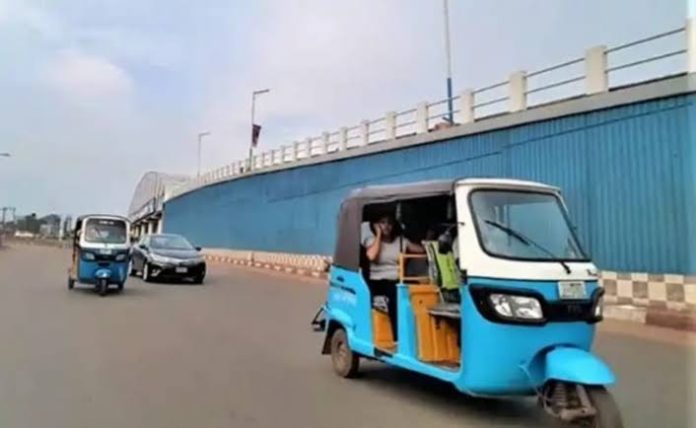Residents of Delta State, particularly those living in the capital city of Asaba, are growing increasingly frustrated over the severe transportation difficulties caused by the country’s economic crisis. Ever since President Bola Ahmed Tinubu took office and removed fuel subsidies, the cost of living has soared, leaving citizens struggling to afford basic services, including transportation.
“When President Tinubu assumed leadership, fuel was around 220 naira per liter,” recalls Mr. Okechukwu, a civil servant. “Now, after the removal of subsidies in May 2023, we’re paying up to 617 naira per liter, and in some places, even 1,000 naira. How can we survive like this?”
The high cost and scarcity of fuel, coupled with the naira’s weakening exchange rate against the dollar, have made life difficult for residents in Asaba. One of the most noticeable impacts has been on transportation. The city’s reliance on tricycles, known locally as “Keke,” has grown more precarious as both availability and affordability have been severely affected.
Delta State’s ban on motorcycles in the capital has worsened the situation. Many tricycles, which were supposed to fill the gap left by the ban, have reduced their operations, choosing instead to stick to select streets rather than the major roads they once plied. This scarcity has led to inflated fares, with residents often forced to pay whatever price the riders demand.
Miss Chioma, a student at Delta State University, said, “It’s been very difficult for us students. I sometimes wait for over 30 minutes to find a Keke. When I finally do, the price they ask for is double what it was last year. We need help.”
For elderly residents like Mrs. Agnes Ufuoma, the cost is unbearable. “I can barely afford to buy food, and now I have to spend more money just to get to the market. The government needs to step in and help us.”
Residents have called on the Delta State government to step in and provide solutions, with many questioning the slow pace of the promised relief. Over a year ago, Governor Rt. Hon. Sheriff Oborevwori assured the people that the deployment of Electric Vehicles (EVs) would help reduce the impact of the subsidy removal. This statement came after the governor hosted Jet Systems Automobile Industry Ltd, an electric vehicle manufacturer, in August 2023. However, since then, little has been done to alleviate the crisis.
“We heard the governor talk about electric vehicles, but we’ve seen nothing on the ground,” said Mr. Matthew, a shop owner in Asaba. “We’re suffering every day, and it feels like the government is just talking without taking real action.”
Frustration has grown as residents feel abandoned, particularly in light of the state government’s inaction in providing a public transportation system to ease the burden on the population.
Speaking to reporters, Delta State Commissioner of Transport, Onoriode Agofure, acknowledged the challenges residents are facing, attributing them to national policies from the Federal Government. “This is not just a Delta State issue; it’s happening all over the country,” he said. “We sympathize with residents, and the governor is very much aware of their plight.”
Agofure also revealed that a committee had been set up to find long-term solutions to the transportation crisis. Among the potential solutions is the introduction of Compressed Natural Gas (CNG) buses, which could offer a more affordable alternative to petrol-powered transport. He added that the state government is working on palliative measures, particularly for schoolchildren, market women, and other vulnerable groups.
However, for residents like Mr. Okoro, a daily commuter, this assurance isn’t enough. “We need action now, not promises. People are suffering, and we can’t wait any longer,” he said.
As the transportation crisis worsens, residents are hopeful but growing impatient for real solutions from the state government, calling for urgent intervention to ease the heavy burden placed on them by the rising cost of transportation.



